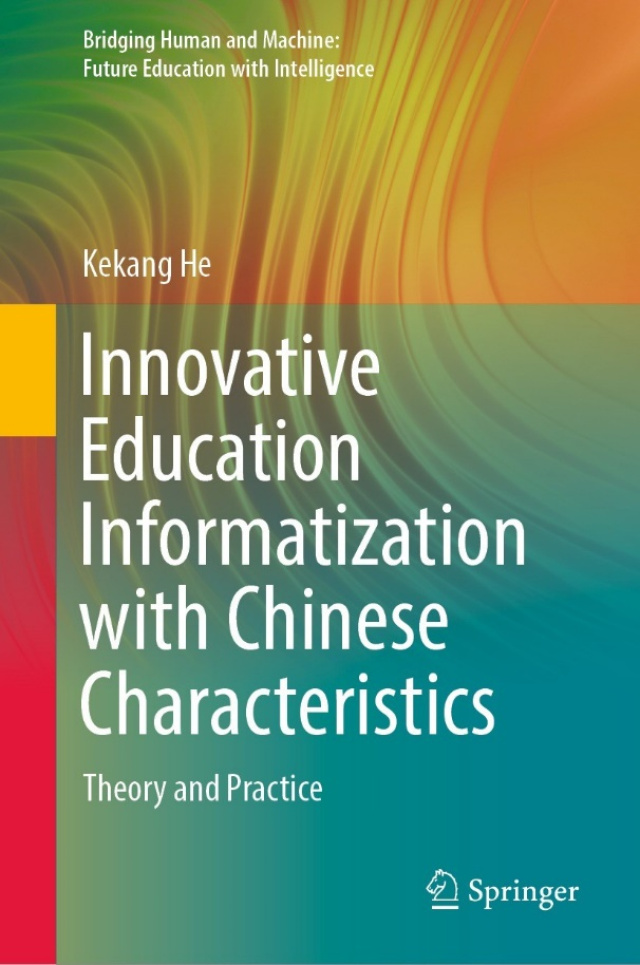

The book Innovative Education Informatization with Chinese Characteristics: Theory and Practice by Prof. He Kekang was recently published by Springer. This book is part of the Bridging Human and Machine: Future Education with Intelligence book series. The Chinese version of this book won the First Prize of the Sixth National Award for Outstanding Achievements in Education Science Research in 2021.
Bibliographic information
Book Title: Innovative Education Informatization with Chinese Characteristics
Authors: Kekang He
DOI: https://doi.org/10.1007/978-981-19-0622-0
Publisher Name: Springer, Singapore
Hardcover ISBN: 978-981-19-0621-3
eBook ISBN: 978-981-19-0622-0
Introduction
This book contains the research of Innovative Education Informatization conducted by researchers from School of Educational Technology, Beijing Normal University since early 1990s. There are three main parts of the book. The first part is about six pillars supporting the theory of Innovative Education Informatization with Chinese Characteristics. Six theories are: 1) Theory of Creative Thinking, 2) New Constructivism, 3) Theory of In-depth Integration of Information Technology and Subjects Teaching, 4) New Theory of Teaching Design, 5) Theory of Children’s Thinking Development, and 6) Language Sense Theory. The second part pays attention to advocating maker education system with Chinese characteristics. The third part focuses on Chinese-style flipped classroom. The book will have profound impact on education informatization.
About the authors
Kekang He (1937-2021) was a professor at Beijing Normal University and the first doctoral supervisor in the field of educational technology in China. He served as the Director of Modern Educational Technology Research Institute of Beijing Normal University. For many years, Professor He and his research team had been engaged in the fields of education informatization engineering, primary and secondary school teaching reform experiment, and education innovation theory. At the same time, he had explored innovation education theory in the Internet era, gradually creating a new educational theory based on creative thinking theory, information technology and curriculum integration theory, children’s thinking development theory, language sense theory (a new theory on children’s language development), and constructivist teaching design theory.
View this book: https://link.springer.com/book/10.1007/978-981-19-0622-0